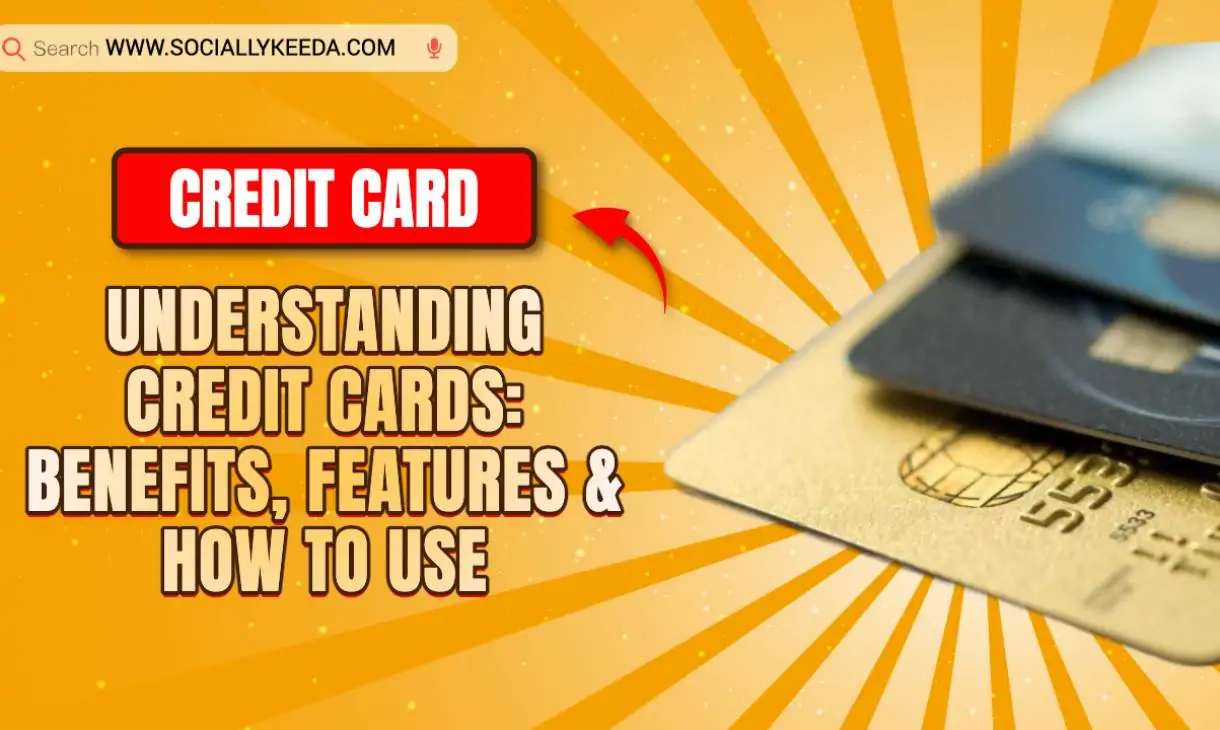
Credit cards have revolutionised how we manage daily expenses, enabling cashless transactions and providing a convenient payment method for millions. From online shopping to booking flights, credit cards offer instant access to funds, reward points, and other benefits that make them an essential financial tool.
This guide will help you understand a credit card, how it works, its key components, benefits, and tips for responsible usage.
A credit card is a payment instrument issued by financial institutions that provides a revolving credit line to the cardholder for making purchases. It allows buying products and services on credit without needing actual cash. The borrowed credit amount must be repaid to the institution through Equated Monthly Instalments (EMIs) or as a lump sum.
Credit cards allow access to instant, interest-free short-term credit up to 45 days from the issuing financial institution to facilitate seamless purchases. The credit availed requires later repayment. Interest accrues on the outstanding amount if it is not fully paid by the due date.
- Advertisement - Continue Reading Below -
- Advertisement - Continue Reading Below -
Financial Institutions determine your credit card eligibility and limit based on income, credit score, repayment history, and other factors.
Here’s a clear breakdown of the key features and processes involved in using a credit card effectively:
1. Financial institutions assign a credit limit up to which you can borrow interest-free credit for up to 45 days
2. When you swipe your credit card on merchant terminals for purchases, you utilise your available credit
3. The financial institution pays the merchant on your behalf, and the transaction amount reduces your credit limit
4. You receive a monthly statement with all transaction details and the minimum amount due
5. Repaying the total amount owing before the due date avoids finance charges. Interest accrues
6. On repayment, your credit limit gets replenished, allowing further interest-free purchases
Critical elements of credit cards include:
1. Card Number: The 16-digit number uniquely identifying your credit card.
2. Cardholder Name: Name of the primary cardholder printed on the card.
3. Expiry Date and Year: The "Valid Thru" date until the card is valid, typically 2-5 years.
4. CVV: The 3-digit number on the rear panel is the Card Verification Value (CVV), which is an additional security layer for online transactions.
Follow these basic guidelines for seamless credit card usage:
Swipe on point-of-sale terminals at merchant outlets or provide card details for online use
Receive text alerts on transactions instantly for real-time tracking
Pay only the minimum amount due to avoid late fines if unable to repay fully one month
Setup standing instructions for auto-debit of the total amount due every billing cycle
Check statement for transactions, total outstanding due, minimum amount needed and due date
Additionally, SMS alerts can be activated, contact information can be updated, and all card usage terms must be followed for a smooth, tension-free experience.
Credit cards provide unmatched convenience, rewards and benefits like:
Use this borrowing facility for big-ticket spending and repay later
Cards offer rewards on every purchase, leading to cashback, air miles, gift vouchers, etc.
The issuer covers loss due to card misuse without liability to genuine cardholder
Cardholders enjoy special discounts, payment flexibility, accelerated reward points and add-on services
Use these tips for various credit card uses and maintain good financial health:
Spend only within repayment capacity and avoid unnecessary purchases
Pay complete and timely bill amounts to prevent interest and late fees
Check statements for errors, discrepancies and unknown transactions
Inform the financial institution of travel plans to avoid international usage blocks
Never publicly share card or personal details over the phone, email, or SMS
Credit cards meaningfully augment cardholders' spending capacity and purchasing power. Judicious use of credit cards by limiting expenses to repayment ability ensures they remain an affordable, convenient payment tool rather than a debt trap.
Maintain financial discipline, monitor card usage proactively, and leverage unique credit card features for maximum benefit.
- Advertisement - Continue Reading Below -
- Advertisement - Continue Reading Below -